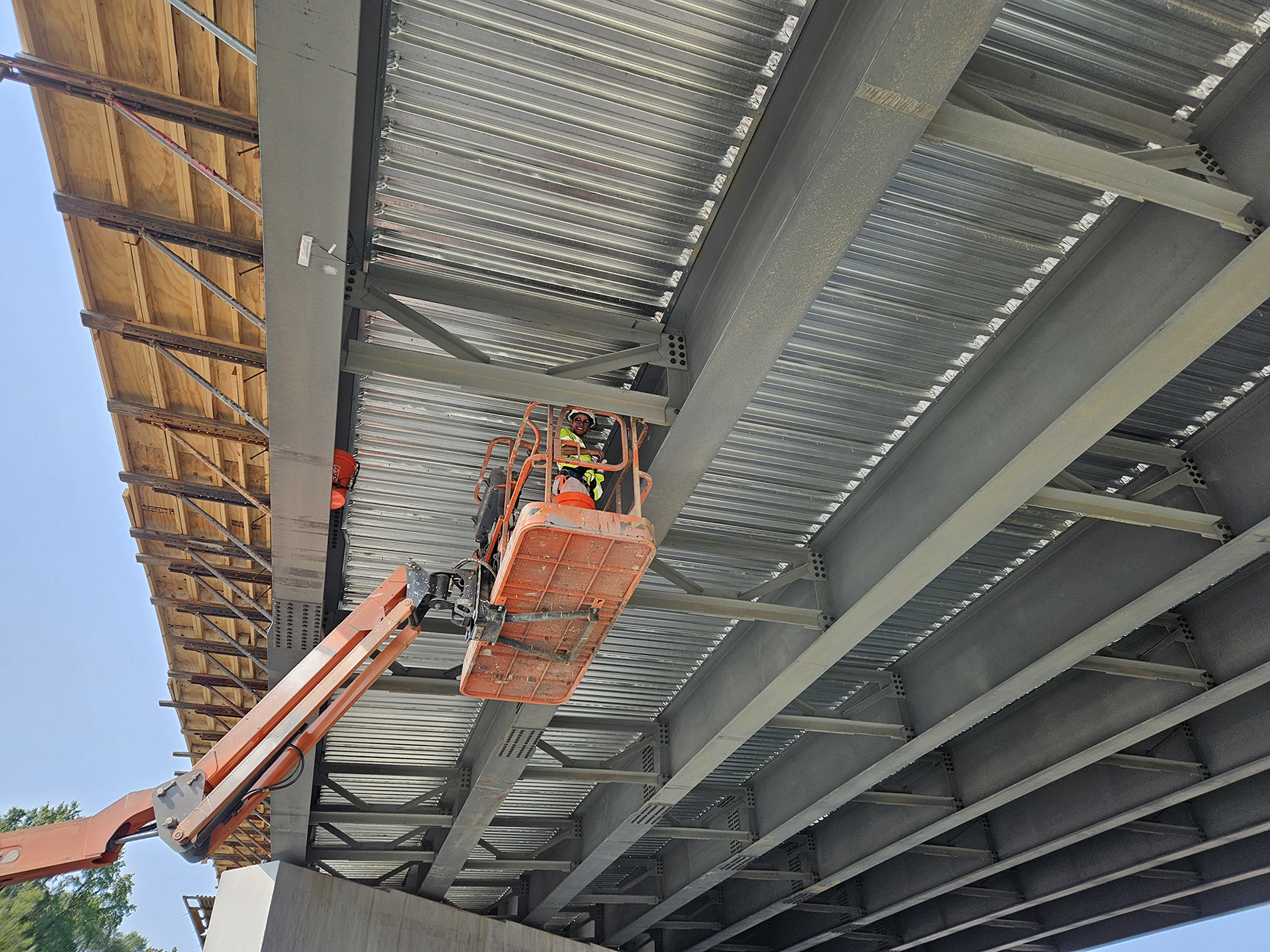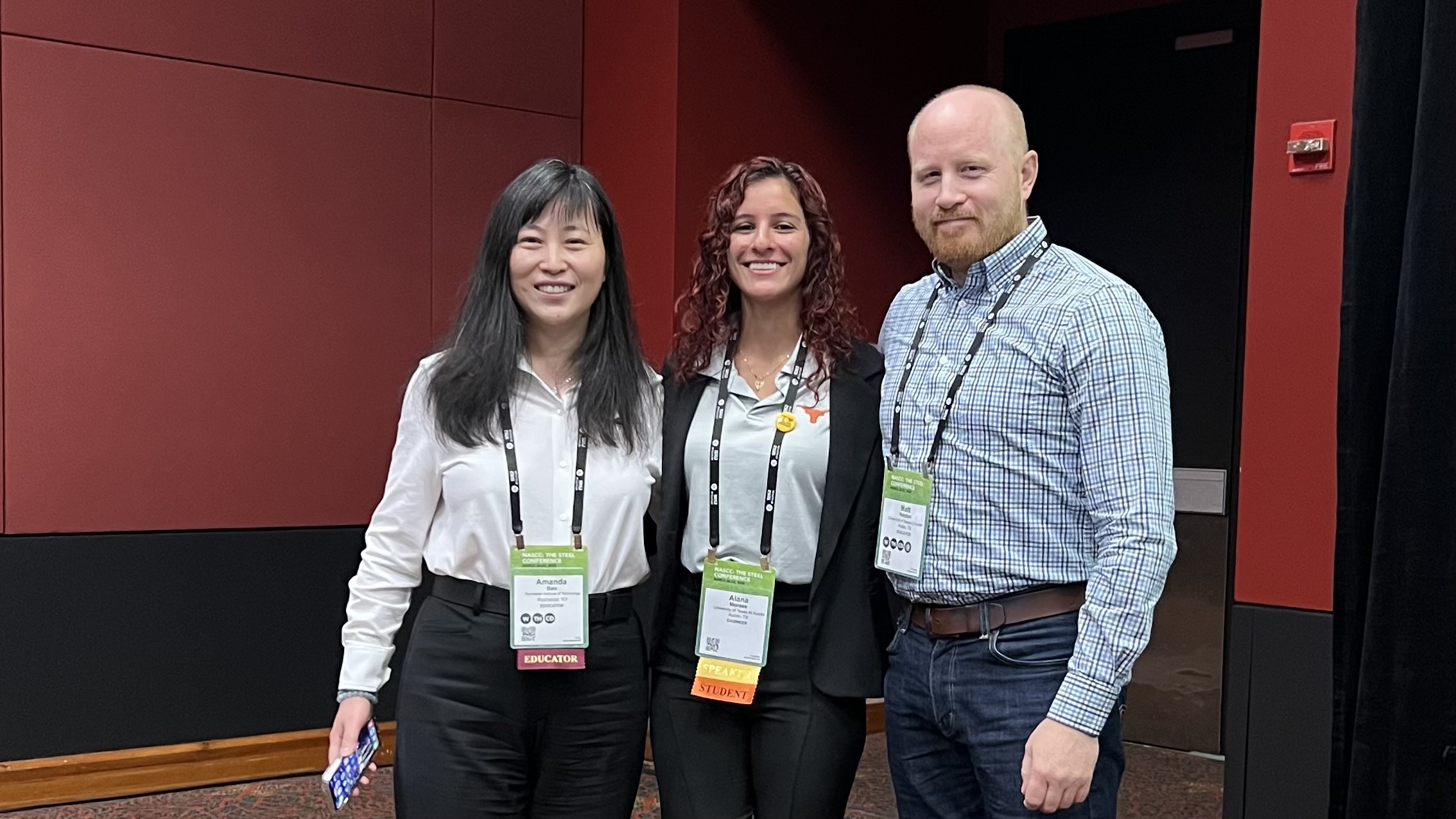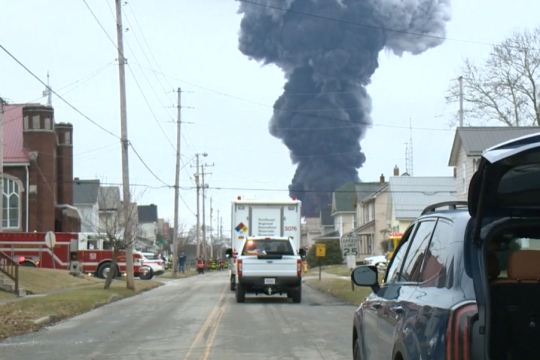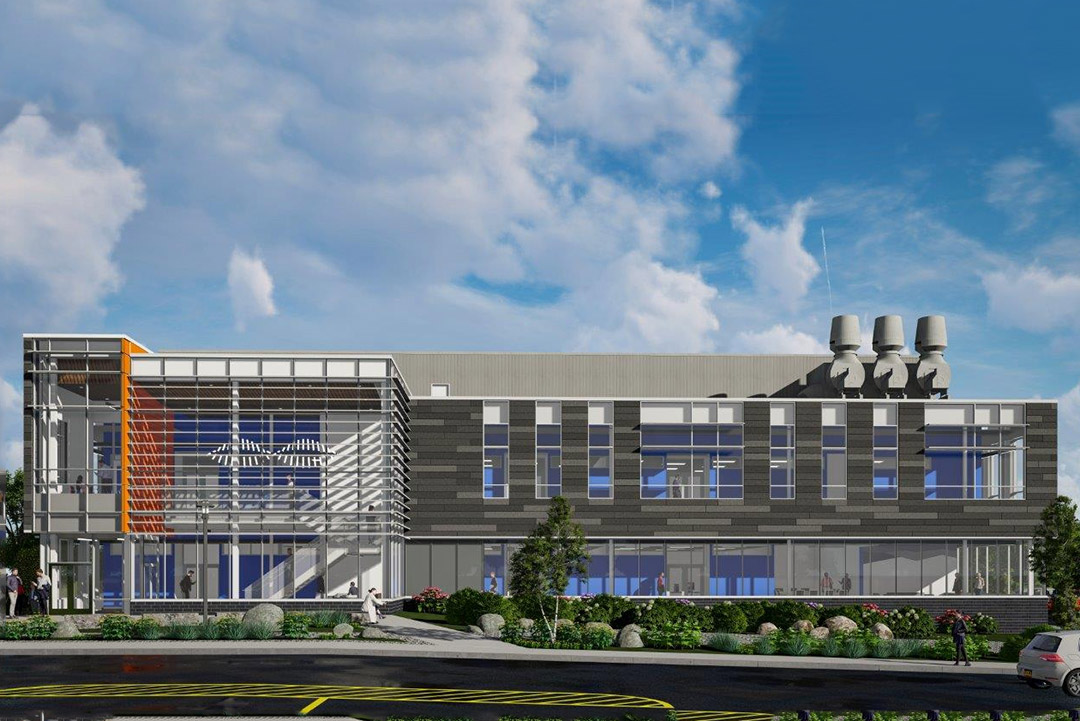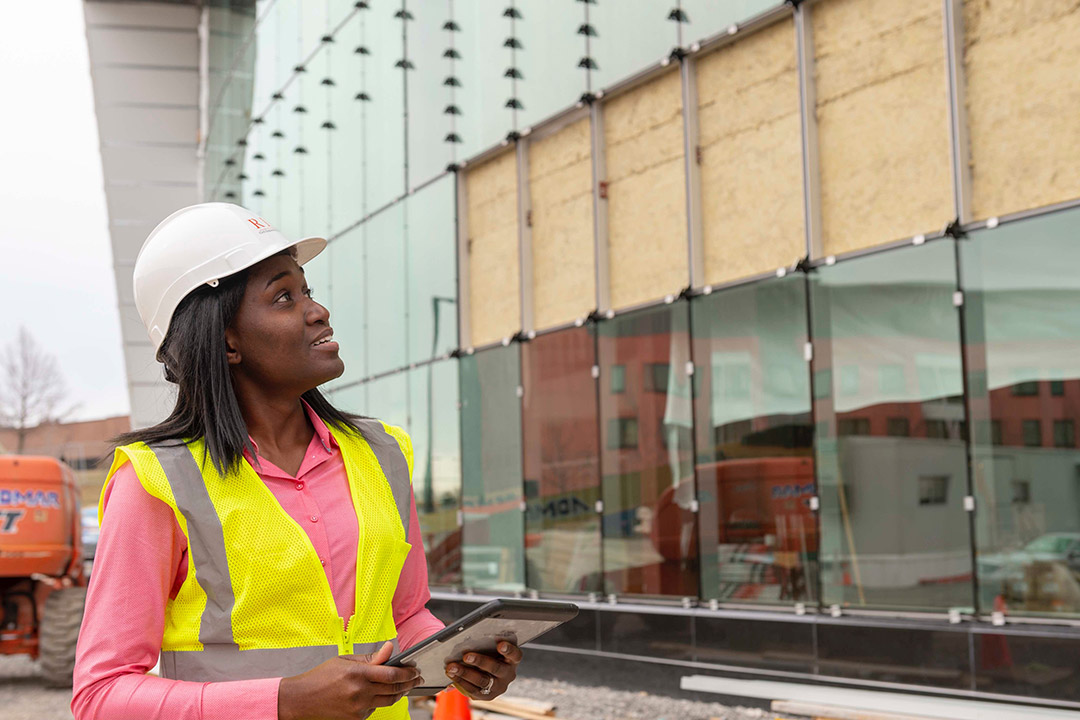Research and Real-World Experience: The RIT Advantage
How Civil ET's emphasis on practical skills and research opportunities and inspiration from supportive professors led Alana to a PhD program at UT Austin, researching structural engineering.
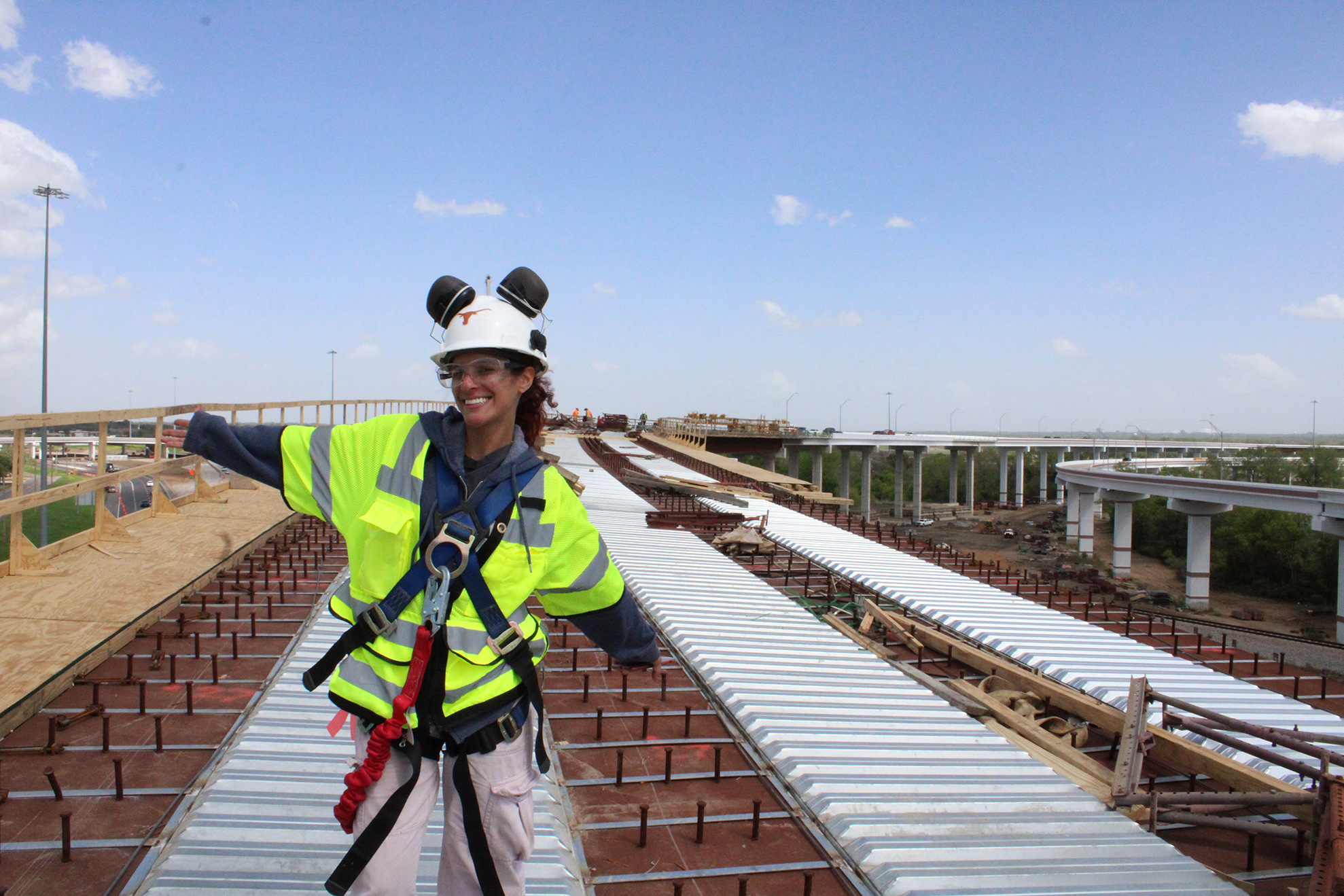
I am currently pursuing my PhD in structural engineering at the University of Texas at Austin. I am studying the shear transfer between the concrete deck and steel girder in composite bridges, and that involves real-time testing of bridges out in the field, as well as large-scale laboratory testing. I just tested a bridge in Dallas and I'm getting ready to test one in Oklahoma and one in Arkansas.
I love research, and I discovered that at RIT. I got lucky enough to be a part of a research team at RIT with Dr. Amanda Bao, and she taught me how to think about the results like a scientist as well as an engineer. RIT also taught leadership and communication skills that are important in group settings, which there are a lot of in our field. I did extracurriculars such as steel bridge and teaching assistantships that helped me get immersed in the academic world, and these activities deepened my passion for our field. Even if you decide to not participate in extracurriculars, the many group projects teach us to work together and take advantage of individual strong suits. In a more specific sense, RIT also has an amazing curriculum, and we graduate with a real sense for design and construction. We learn to design with the field workers in mind, so our design isn't convoluted or unnecessarily expensive. We learn to use drafting software that is the standard in the industry, which many schools don't require you to learn it to graduate. We learn to think about the design, rather than just follow equations and theory. When you graduate from RIT, you have enough experience to go confidently into a new challenge.
My relationship with my professors was so important. I loved talking to my professors like they were my mentors because I knew they wanted me to succeed. Dr. Faruque, the Wolcott's, professor Gretchen Wainwright always had their doors open for me. The advising and department staff, Brittany Rourke specifically, were always a friendly face I could discuss my worries with. Having a tight group of adults who really cared about my wellbeing made all the difference to a teenager who really had no idea what to do in college.
The most important exposure I had was when Dr. Bao took me to many conferences in upstate NY, after I started to work with her. These events showed me how important research work is to the DOTs and industry in general. In 2019, Dr. Bao took me to the World Steel Bridge Symposium at the NASCC: The Steel Conference. She was presenting on our project, and I was lucky to go along to St. Louis. It was an amazing networking opportunity, and I learned a lot from watching different presentations. I go back to that conference every year and run into people who I first met 5 years ago now. In 2024, I presented my own work at the same event, the World Steel Bridge Symposium at the NASCC: The Steel Conference, in San Antonio, TX this time. Dr. Bao was extremely supportive and made an effort to go watch me present. This full circle moment meant a lot to me, and it is another example of how much the professors are invested in your success.
I originally chose RIT because of the co-op program; I loved that I would graduate with work experience and have a better feel for the field I wanted to go into. I did go to the other universities, post RIT. I got my Masters from Virginia Tech and am currently at one of the top engineering schools in the country at UT Austin, but I still believe RIT was the perfect school to start my career. Had I chosen to go straight into the field, like most of my friends did, I know I would've been prepared because they are all successful in their careers, too. My professors really inspired me to continue to learn, though, and my undergraduate research experience led me to this passion for large-scale testing and research methods, which required bigger facilities and different mentors. But when I was ready to graduate in 2020, in the middle of the pandemic, I still had job offers that I know I would have succeeded in because of the skills I learned in the 5 years I was at RIT.
I found my co-ops by myself, just looking around the internet, but the co-op prep course we are required to take did help me with interviews and professionalism. RIT also has a separate interview prep, resume help, and many other career services that were useful. Our advisor Maureen was the best at communicating with us and making sure we knew of the opportunities around our area. Overall, I think RIT did a great job preparing the students for the real world.
I always liked math, so I knew I was going into the STEM world. Honestly, it wasn't until I toured RIT that I was set on Civil Engineering. I loved the department when I visited, and the program was really attractive because you start learning about your field in the first semester, which is rare. I knew I was interested in structural design, and the number of courses offered for the structures focus in undergrad at RIT was impressive. I also liked the facilities, the gym and the wellness studios were a bonus, but I was a pretty active kid in high school and participated in a lot of team sports. I knew school was going to be hard, so having facilities to work the stress out was really important.
My main takeaway from RIT is the people. The many friend groups I made in college are my family now. We see each other every year, despite living on different coasts, and that is the norm for most RIT alumni I know. And whenever I am up in Rochester, I love stopping by RIT to see the people in our department who watched me grow up. I am so thankful for many things that RIT brought me, but the people were what really helped me through the toughest parts of an engineering degree. I received a great education from RIT, learned as much as possible from the amazing faculty in all departments really, and I'm proud of being a Tiger. Engineering is going to be demanding wherever you decide to go, and curricula don't change just make sure you go somewhere you can find a support system.









